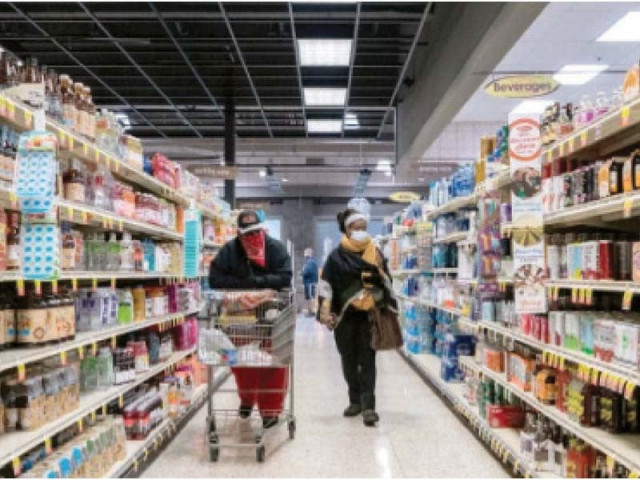Food items go dearer
Prices of essential items set on whims as official rates rendered ineffective; district admin absent from the scene

Following the recent hike in petrol prices, the impact of inflation has spiralled out of control, leading to a surge in the prices of essential items and food products.
Capitalising on the chaotic inflationary trend, traders, retailers, and hoarders are setting the price on their own whims, rendering price regulation ineffective.
Retailers across various areas have increased the prices of vegetables, fruits, pulses, and chillies, selling them well above the official price list. Similarly, wholesalers, under the pretext of the petroleum price increase, have further fanned the flames of profiteering.
Commodities such as milk, meat, chicken, and vegetables are being sold at arbitrary prices, with milk sellers, bakery owners, and vegetable and meat vendors charging whatever prices they deem fit.
The already dysfunctional official rate setting and enforcement mechanism have completely collapsed, with the district administration seemingly absent from the scene, sources said.
To make matters worse, efforts to crack down on hoarders have yielded little results, as the administration's attempts to address the issue have proven futile.
Driven by rampant inflation, dry fruit shops have become deserted, while the price of almonds in Peshawar has skyrocketed to Rs2,000 per kg. High-quality almonds are being sold for Rs1,600 to Rs2,000, second-grade almonds for Rs1,500 to Rs1,800, walnuts for Rs400 to Rs1,000, and pistachios for Rs2,200 to Rs3,500.
Dry fruit traders in various parts of the city, including Peshawar Cantt, Pipal Mandi, and Ashraf Road, have set their own rates, attributing the price hikes to increased taxes.
Karachi
Similarly, the situation in Karachi mirrors that of Peshawar, as food and beverages are being sold above official rates throughout the city with price control committees and inactive magistrates seeming to be absent from the scene, giving wholesalers an open field to exploit.
The increase in petrol prices has emboldened wholesalers to charge arbitrary rates, extending the trend to commodities, milk, meat, poultry, and vegetables.
It is notable that poultry product sellers, milk sellers, bakery owners, and vegetable and meat vendors have taken it upon themselves to set prices at their discretion.
The government's rate-setting and implementation mechanism has proven to be utterly ineffective, leaving citizens to bear the brunt of unbridled inflation.
Chakki flour is being sold at Rs170, fine flour at Rs160, sugar at Rs 170, gram dal at Rs240, and white gram at Rs400. Cooking oil and ghee are also priced at Rs530 and Rs500 per kg, respectively.
Chicken meat is being sold for Rs540 to Rs580 per kg, beef for Rs800 per kg, and heifer meat for Rs1,200 per kg.
Meanwhile, potatoes have been fixed at Rs100 per kg, onions are being sold at Rs70 to Rs 80 per kg, ginger is priced at up to Rs1,200 per kg, garlic at Rs500 per kg, cucumber at Rs120 per kg, and tomatoes at Rs160 per kg.
Other seasonal vegetables are also commanding prices ranging from Rs120 to Rs200 per kg.
Concerned citizens share a bleak outlook, seeing no hope for relief from the grips of inflation as the official price list proves ineffective.
According to them, the wholesale market, both in general and thrift markets, continues to thrive uncontrollably.
Moreover, with the recent increase in petrol prices, the cost of shipping goods has also mounted, further compounding the problem.


















COMMENTS
Comments are moderated and generally will be posted if they are on-topic and not abusive.
For more information, please see our Comments FAQ